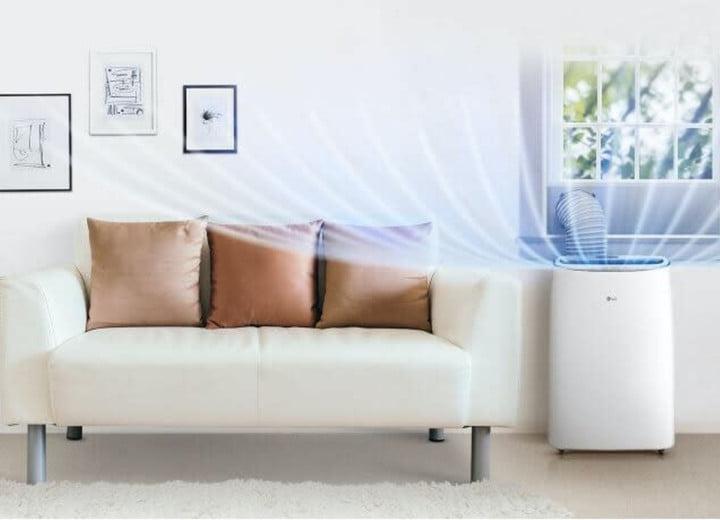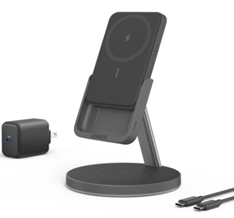Are the summer heat and humidity wearing you down? Portable air conditioners are versatile appliances that are fast and easy to install and nearly as easily move from room to room as the need arises. You can buy small, personal A/C devices for your desktop or side table, but we’re focusing on portable air conditioners that can cool an entire room. When the thermometer rises and humidity builds, a portable AC unit you can roll to different areas in your home or office can mean the difference between usable and unusable spaces. All you need to use a portable air conditioner is an ordinary AC power outlet and a window to vent the unwanted hot air.
ContentsPortable air conditioners are often handy to have even in homes with central A/C. For example, most homes don’t cool the air in garages, which limits use in the summer. If you want to use your garage to work on your car, for hobbies, or to work out, plug in a portable air conditioner and put the venting hose in a window or an exterior door (using appropriate-sized vent brackets). For garages in most areas, if you start an appropriately-sized portable air conditioner 15 to 30 minutes before you start using the area you should be totally comfortable. Moving a portable air conditioner to a normally uncooled guest room is a common use in homes with window units installed in just a few rooms.
Most homes without central air conditioning use window A/C units, but portable air conditioners are a better alternative or the only choice for some homes. If your apartment doesn’t allow traditional A/C units that protrude from the window, a portable air conditioner can do the trick because portables have vents that are flush with the window opening. Normal window air conditioners aren’t a choice if you have windows with vertical glass sections, if exterior screens can’t be removed, or if the window openings are too small.
If portable air conditioning units sound like the answer to your room comfort needs, how do you know how to choose one? We’ve listed the major features and factors to consider when choosing a portable air conditioner.

Cooling capacity
Picking the right size for the room or area you want to cool is the most important factor in choosing a portable air conditioner. If you buy a unit that’s too small for your room it will run longer and more often, which wears out appliances prematurely, cost more to operate, and likely never adequately cool the space. Overbuying isn’t a good idea either because larger units are more expensive to run plus, because they cool adjacent air very quickly, shut off prematurely which causes the unit to restart more often than properly-sized appliances.
Portable air conditioner cooling capacity, like window units, are rated in BTUs, (British Thermal Units). BTUs are a standard measure of heat change — in air conditioners, BTUs represent cooling power. Most portable air conditioners include maximum rated room size in feature lists or specifications tables. You’ll find variations in how manufacturers rate room capacities, however. Here’s a quick guide:
Note, however, that rooms on the sunny side of your home, rooms with many windows, rooms with many people, and kitchens will all need more cooling power.
Multipurpose capabilities
Portable air conditioners are primarily used for cooling, but many room-sized units can also function as fans or as dehumidifiers without changing the air temperature. Air conditioners remove humidity while they cool the air, but on temperate rainy days, the ability to switch to a “dry” mode with no cooling is convenient. Similarly, if you just want to air out a room, switching to “fan” mode can do the trick quickly and relatively quietly.
Controls and ease of use
All portable air conditioners should have controls mounted on the unit itself to select modes, desired temperature, and fan speed. Many also come with remote controls so you don’t have to get up to change a setting. 24-hour timers are common, as are automatic restarts after power failures. For the ultimate in portable air conditioner management, look for a unit that connects to your home Wi-Fi network so you can access and control the appliance remotely with an app or via a digital voice assistant such as Amazon Alexa or Google Assistant.
Noise
Window air conditioners can be noisy, but, depending on their size and design, portable air conditioners can be even noisier. Window units extend the major loud parts outside the house but portable air conditioners are entirely inside the house. Portable air conditioners don’t consistently list their noise levels in decibels, but if noise will be a factor, look for decibel ratings or noise reduction or mitigation features.









